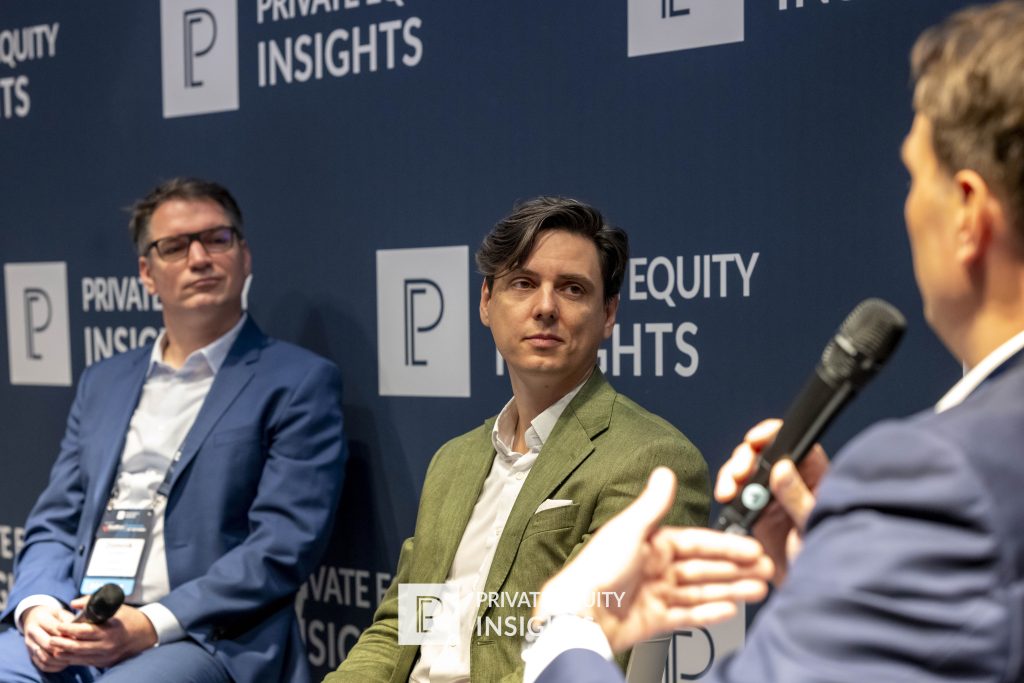Why Europe’s private equity firms are abandoning the generalist playbook


European private equity has gone through a decade in which capital inflows masked weakened differentiation. As a result, firms are now being forced to decide what they actually stand for.
The choice is increasingly binary: build genuine sector depth, or risk being outmanoeuvred by specialist competitors who understand their markets better.
That tension sat at the centre of a discussion between Verdane, Aequita, Ardian, and Altor, moderated by Giovanna Maag, partner at Altor. What emerged was a recognition that the market itself is pushing firms towards sharper identities.
Gunnar Chrestin of Ardian described his firm’s evolution from generalist investing to a more disciplined focus. “At some point, it’s all about focus,” he said. His team began by “look[ing] back in the mirror” to understand where performance had actually come from. For Ardian, that meant doubling down on areas where the network was strongest and returns most consistent. A long track record in the food value chain, for example, provided enough repeatability to justify a sustained theme.
Verdane takes a different route, one grounded in fund size and sector knowledge. Dominik Schwarz explained that at the smaller end of their ticket range, “it’s more about who you know,” but as deal sizes grow, “it’s very important that you know what you know.” In software, he said, their team goes “very straight after cybersecurity software,” drilling down into increasingly narrow verticals. Verdane’s differentiation is to be “more local than the fly-in, fly-out specialists, but more specialised than the local generalists.”
Not every firm sees specialisation through a sector lens. Aequita’s model is built around situational expertise rather than thematic hunting. Simon Schulz said the firm enters businesses undergoing deep operational change: “We are a very operational, hands-on investor. We have more than 90 operational people in the house that can go into the companies in order to transform them.” The common thread across sectors, he said, is transformation – not industry taxonomy.
Still, even in transformation-led strategies, the industry’s shift is visible. Schulz noted that industries under structural pressure, automotive and chemicals among them, offer outsized opportunities precisely because they require re-engineering from the inside. The message was clear: specialisation is not always about sector selection; it can be about organisational capability.
The discussion further revealed how this shift is reshaping sourcing. Carve-outs are rarely one-to-one opportunities; they are typically formal processes. Schulz said they try to be “very close to the corporate world […] to identify potential transformational topics early on,” even if most opportunities still end in competitive processes. Ardian, by contrast, leans heavily on deep-sector intelligence, “thirty senior advisors” who alert them to early signals in their industrial ecosystems.
Value creation, too, is morphing into a more rigorous, pre-commitment discipline. Chrestin said Ardian now initiates value creation planning inside due diligence itself. “If you do not start with that… you lose a lot of traction,” he said. The objective is to hit the ground running. He likened it to a “triathlon start”: fail to accelerate immediately and value leakage sets in.
Schwarz described a similarly structured approach at Verdane. Their teams begin by mapping long-term macro drivers – digitalisation, decarbonisation. Only then does screening begin, with diligence anchored by internal experts in areas such as digitalisation and AI. For Verdane, sector depth is inseparable from functional depth.
What binds the panellists is a shared assessment of how competition has intensified. Schwarz noted that ten years ago, Germany’s mid-cap software space had “two handful of players.” Now, “you have maybe 50,” including US funds and large platforms pushing down-market with specialist vehicles. In that environment, the only defensible edge is early identification and long hold conviction. “If you have a great asset, you want to stay with the asset as long as possible,” he said, citing Verdane’s twelve-year hold on EasyPark.
Ardian, meanwhile, has built entirely new specialist funds where they lacked the expertise to participate. Chrestin was explicit in underlining that without sector depth, they “would have never touched the semiconductor opportunity.” Only once a team with two decades of industry experience approached them did Ardian agree to raise a dedicated vehicle.
LPs, the panellists said, are accelerating this divergence. Schwarz recalled that fundraising discussions “were always around what is the key differentiation.” Investors want clarity beyond breadth. Decarbonisation and digitalisation have become hygiene factors; true differentiation now lies in operational insight and granular sector knowledge.
If there was a unifying insight across the discussion, it was that private equity’s competitive frontier has shifted inward. Networks, operating expertise, and depth of understanding matter more than ever. The firms that will outperform are not those that cover the most ground, but those that know exactly which ground is theirs.
by Andreea Melinti
If you think we missed any important news, please do not hesitate to contact us at [email protected].
Can`t stop reading? Read more.




